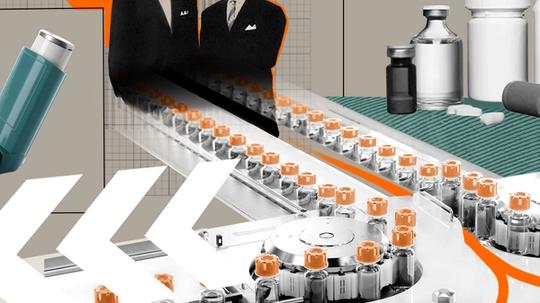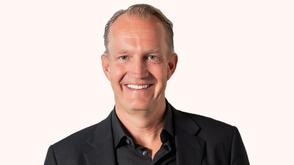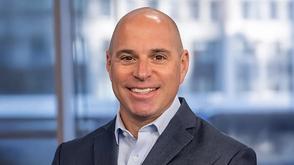How EQT Helped Asthmatics by Building A Low-Carbon Respiratory Device Maker


After acquiring founder-led pharmaceutical manufacturer Recipharm, EQT carved out respiratory device manufacturer Bespak and created a more sustainable way to deliver medicine.
- Following its acquisition of Swedish drug manufacturing company Recipharm in 2021, EQT carved out Bespak, a leading respiratory device manufacturer focused on sustainable inhalation products.
In early 2021, when EQT purchased Bespak’s parent company, Recipharm, taking it private after seven years listed on Nasdaq Stockholm, the company that would grow into one of the world’s leading respiratory device makers, used by asthmatics and others, had two sites in England but no coherent customer-centric strategy.
In a sector notorious for its outsized contribution to greenhouse gases, today, Bespak helps 1,000 people breathe every single second via its sustainably manufactured inhalation products, and supports pharmaceutical companies worldwide in their efforts to decarbonize.
Breathing life into Bespak
Recipharm was founded in 1995 by Swedish entrepreneurs Thomas Eldered and Lars Backsell. The firm quickly became a significant pharmaceutical contract development and manufacturing organization (CDMO), floating in 2014 and growing into a global force by acquiring numerous production facilities.
The EQT Nordic team had been tracking the company’s progress for years and had already developed potential strategies for improving the company Eldered and Backsell had built.
Given the market opportunities and the existing in-house expertise, carving out a specialist inhalation CDMO was one attractive option.
In March 2021, Recipharm delisted under EQT’s ownership, after the private equity firm acquired the company for SEK24.9bn ($2.97bn)
Shortly after the acquisition, Matthias Wittkowski, EQT Partner and later a Bespak board member, was brought in to drive the transformation. As work got underway across the wider Recipharm business, Wittkowski and his team quickly confirmed that, as anticipated, one of the largest opportunities for growth could be found in the sites’ manufacturing respiratory devices.
Environmental costs
The environmental impact of the inhaler industry is severe. The propellants used in traditional inhalers account for a huge portion of most pharmaceutical companies’ Scope 3 (indirect) emissions. Over their lifespan, some inhalers produce as much greenhouse gas as the average petrol-powered car does every 60 miles.
A greater understanding of this issue, combined with increased regulatory pressure and changing consumer attitudes, meant that the respiratory arms of pharmaceutical firms began reassessing production.
However, shifting to a more sustainable manufacturing method would mean “substantial investment,” says Wittkowski. That’s the sort of investment that shareholders of publicly listed pharmaceutical companies don’t want to see in their quarterly reports. For a recently delisted company without those pressures, it made strategic sense for EQT to commit capital to enable other firms to outsource their new manufacturing requirements to Bespak.
A plan was put in place to combine the individually run sites into a coherent end-to-end offering for respiratory drug makers, from product development to component manufacturing and final assembly.
The first step was to bring all the required facilities into one business unit. “There were a couple of disjointed respiratory-focused sites with no connection to each other and no integration,” says Wittkowski. “We invested heavily in the integration of those parts of the business and created a respiratory-focused and medical device-focused CDMO.”
At the Holmes Chapel facility in England that would later become Bespak HQ, EQT replaced the highly damaging HFA-134a propellant with the far greener HFO-1234ze and 152a, making Bespak one of the only CDMOs to do so at commercial scale.
Bespak was soon able to provide complete and sustainable “fill-and-finish” services to its clients – inserting the drug into the device before it’s packaged for distribution, a process typically split between a CDMO and its clients. This change allowed Bespak to save clients the expenditure of creating their own sustainable facilities in-house.
Building a high-caliber team
One of the things that impressed the EQT deal team ahead of the acquisition and later gave Wittkowski confidence that a specialist business would thrive was the level of internal expertise.
“We could not have done it without maintaining those internal resources, which are deeply ingrained in that respiratory world,” explains Wittkowski.
However, there was an understanding that those existing experts needed the right external hires to bring a fresh perspective.
“We could also not have done it without the involvement and the attraction of that broad set of new talents at both the management and board-level,” he adds.
Long-term Recipharm employees such as Chris Hirst, now CEO, were joined by experienced specialists such as CFO Maria Neeve, a specialist in private-equity-backed businesses, and CTO Alan Harris, who brought over 20 years’ worth of experience working in respiratory product development to the team.
Bespak is launched
By 2024, Bespak Limited officially launched with two UK sites: Holmes Chapel near Manchester and Kings Lynn in Norfolk. The company is now a critical partner of pharmaceutical companies looking to improve efficiency and become more sustainable.
Since its inception, Bespak has manufactured over one billion inhalers and four billion valves.
“We found these super interesting parts within this huge ocean of a company and were able to identify them, combine them, and create this pearl, which is now the market leader in respiratory CDMO,” says Wittkowski.
But there is still work to be done to “decarbonize the respiratory world”, he adds. “The amount of white space in terms of companies that are still using those old carbon-heavy propellants is huge. But I’m hopeful and confident we can convince many more of those to join us on that decarbonization journey.”
ThinQ by EQT: A publication where private markets meet open minds. Join the conversation – [email protected]
On the topic ofInsights
Exclusive News and Insights Every Week
Sign up to subscribe to the EQT newsletter.






